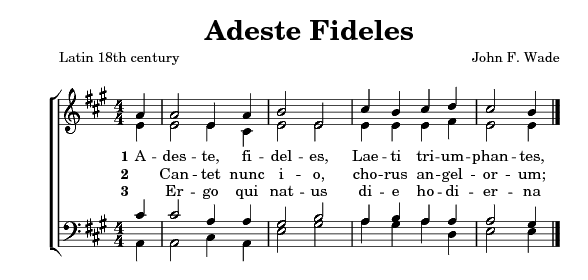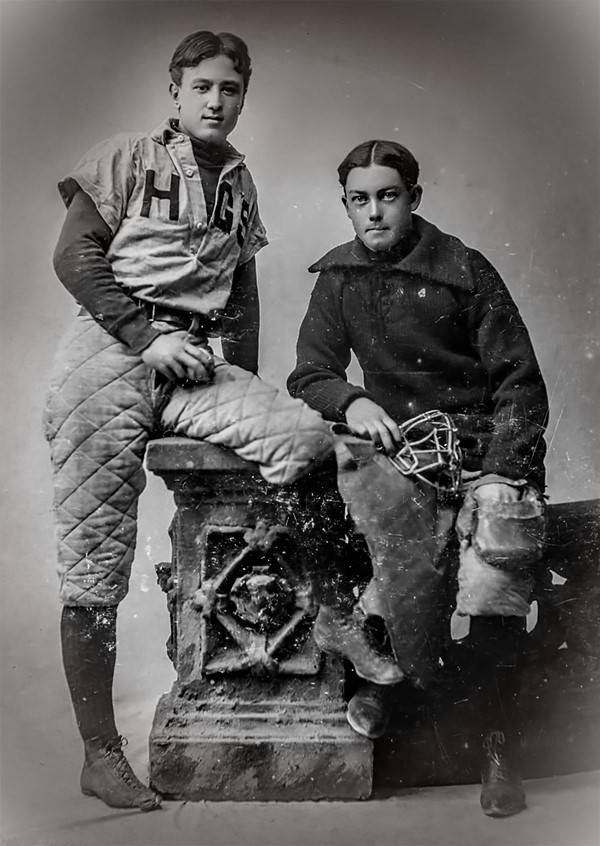|
Abide With Me (1861)
"Abide with Me" is a Christian hymn by Scottish Anglican cleric Henry Francis Lyte. A prayer for God to stay with the speaker throughout life and in death, it was written by Lyte in 1847 as he was dying from tuberculosis. It is most often sung to the tune "Eventide" by the English organist William Henry Monk. History The author of the hymn, Henry Francis Lyte, was an Anglican cleric. He was a curate in County Wexford from 1815 to 1818. According to a plaque erected in his memory in Taghmon Church, he preached frequently in Killurin Church, about nine miles from there. During that time the rector of Killurin Parish, the Reverend Abraham Swanne, was a lasting influence on Lyte's life and ministry. Later he was vicar of All Saints' Church in Brixham, Devon, England. For most of his life Lyte suffered from poor health, and he would regularly travel abroad for relief, as was customary at that time. There is some controversy as to the exact dating of the text to "Abide with Me". An ... [...More Info...] [...Related Items...] OR: [Wikipedia] [Google] [Baidu] |
Hymn
A hymn is a type of song, and partially synonymous with devotional song, specifically written for the purpose of adoration or prayer, and typically addressed to a deity or deities, or to a prominent figure or personification. The word ''hymn'' derives from Greek (''hymnos''), which means "a song of praise". A writer of hymns is known as a hymnist. The singing or composition of hymns is called hymnody. Collections of hymns are known as hymnals or hymn books. Hymns may or may not include instrumental accompaniment. Although most familiar to speakers of English in the context of Christianity, hymns are also a fixture of other world religions, especially on the Indian subcontinent (''stotras''). Hymns also survive from antiquity, especially from Egyptian and Greek cultures. Some of the oldest surviving examples of notated music are hymns with Greek texts. Origins Ancient Eastern hymns include the Egyptian ''Great Hymn to the Aten'', composed by Pharaoh Akhenaten; the Hurrian ''Hy ... [...More Info...] [...Related Items...] OR: [Wikipedia] [Google] [Baidu] |
Hymn Tune
A hymn tune is the melody of a musical composition to which a hymn text is sung. Musically speaking, a hymn is generally understood to have four-part (or more) harmony, a fast harmonic rhythm (chords change frequently), with or without refrain or chorus. From the late sixteenth century in England and Scotland, when most people were not musically literate and learned melodies by rote, it was a common practice to sing a new text to a hymn tune the singers already knew which had a suitable meter and character. There are many hymn tunes which might fit a particular hymn: a hymn in Long Metre might be sung to any hymn tune in Long Metre, but the tunes might be as different as those tunes that have been used for centuries with hymns such as ''Te lucis ante terminum'', on one hand, and an arrangement of the calypso tune used with ''Jamaica Farewell'', on the other. Hymnal editors Editors bring extensive knowledge of theology, poetry, and music to the process of compiling a new hymn ... [...More Info...] [...Related Items...] OR: [Wikipedia] [Google] [Baidu] |
Anzac Day
, image = Dawn service gnangarra 03.jpg , caption = Anzac Day Dawn Service at Kings Park, Western Australia, 25 April 2009, 94th anniversary. , observedby = Australia Christmas Island Cocos (Keeling) Islands Cook Islands New Zealand Niue Norfolk Island Tokelau Tonga , duration = 1 day , frequency = Annual , scheduling = same day each year , date = 25 April , observances = Dawn services, commemorative marches, remembrance services , type = historical , longtype = Commemorative, patriotic, historic , significance = National day of remembrance and first landing of the Anzacs at Gallipoli , relatedto = Remembrance Day Anzac Day () is a national day of remembrance in Australia and New Zealand that broadly commemorates all Australians and New Zealanders "who served and died in all wars, conflicts, and peacekeeping operations" and "the contribution and suffering of all those who have served". Observed on 25 April eac ... [...More Info...] [...Related Items...] OR: [Wikipedia] [Google] [Baidu] |
Wedding Of Princess Elizabeth And Philip Mountbatten
The wedding of Princess Elizabeth and Philip Mountbatten took place on Thursday 20 November 1947 at Westminster Abbey in London, United Kingdom. The bride was the elder daughter of King George VI and heir presumptive to the British throne. The groom was born a Greek and Danish prince; he abandoned these titles on his adoption of British nationality four months before the announcement of their marriage and was made Duke of Edinburgh, Earl of Merioneth and Baron Greenwich on the morning of the wedding. Engagement Elizabeth and Philip were second cousins once removed (by descent from Christian IX of Denmark and Louise of Hesse-Kassel) and third cousins (by descent from Queen Victoria and Prince Albert). Princess Elizabeth met Prince Philip in 1934, at the wedding of Philip's cousin Princess Marina of Greece and Denmark to Prince George, Duke of Kent, paternal uncle of Elizabeth, and again in 1937. After another meeting at the Royal Naval College in Dartmouth in July 1939, ... [...More Info...] [...Related Items...] OR: [Wikipedia] [Google] [Baidu] |
Mahatma Gandhi
Mohandas Karamchand Gandhi (; ; 2 October 1869 – 30 January 1948), popularly known as Mahatma Gandhi, was an Indian lawyer, anti-colonial nationalist Quote: "... marks Gandhi as a hybrid cosmopolitan figure who transformed ... anti-colonial nationalist politics in the twentieth-century in ways that neither indigenous nor westernized Indian nationalists could." and political ethicist Quote: "Gandhi staked his reputation as an original political thinker on this specific issue. Hitherto, violence had been used in the name of political rights, such as in street riots, regicide, or armed revolutions. Gandhi believes there is a better way of securing political rights, that of nonviolence, and that this new way marks an advance in political ethics." who employed nonviolent resistance to lead the successful campaign for India's independence from British rule, and to later inspire movements for civil rights and freedom across the world. The honorific ''Mahātmā'' (Sanskrit ... [...More Info...] [...Related Items...] OR: [Wikipedia] [Google] [Baidu] |
George V Of The United Kingdom
George V (George Frederick Ernest Albert; 3 June 1865 – 20 January 1936) was King of the United Kingdom and the British Dominions, and Emperor of India, from 6 May 1910 until his death in 1936. Born during the reign of his grandmother Queen Victoria, George was the second son of Albert Edward, Prince of Wales, and was third in the line of succession to the British throne behind his father and his elder brother, Prince Albert Victor. From 1877 to 1892, George served in the Royal Navy, until the unexpected death of his elder brother in early 1892 put him directly in line for the throne. On Victoria's death in 1901, George's father ascended the throne as Edward VII, and George was created Prince of Wales. He became king-emperor on his father's death in 1910. George's reign saw the rise of socialism, communism, fascism, Irish republicanism, and the Indian independence movement, all of which radically changed the political landscape of the British Empire, which itself reache ... [...More Info...] [...Related Items...] OR: [Wikipedia] [Google] [Baidu] |
Christian Denomination
A Christian denomination is a distinct religious body within Christianity that comprises all church congregations of the same kind, identifiable by traits such as a name, particular history, organization, leadership, theological doctrine, worship style and sometimes a founder. It is a secular and neutral term, generally used to denote any established Christian church. Unlike a cult or sect, a denomination is usually seen as part of the Christian religious mainstream. Most Christian denominations self-describe themselves as ''churches'', whereas some newer ones tend to interchangeably use the terms ''churches'', ''assemblies'', ''fellowships'', etc. Divisions between one group and another are defined by authority and doctrine; issues such as the nature of Jesus, the authority of apostolic succession, biblical hermeneutics, theology, ecclesiology, eschatology, and papal primacy may separate one denomination from another. Groups of denominations—often sharing broadly similar b ... [...More Info...] [...Related Items...] OR: [Wikipedia] [Google] [Baidu] |
Songs Of Praise
''Songs of Praise'' is a BBC Television religious programme that presents Christian hymns sung in churches of varying denominations from around the UK. The series was first broadcast in October 1961. On that occasion, the venue was the Tabernacle Baptist Church in Cardiff. It is one of the longest running series of its genre on television anywhere in the world. Presenters and contributors Presenters of the show have included Kwame Kwei-Armah, Geoffrey Wheeler, Michael Barratt, Cliff Michelmore, Sir Harry Secombe, Alan Titchmarsh, Roger Royle, Debbie Thrower, Bruce Parker, Ian Gall, Martin Bashir, Huw Edwards, Eamonn Holmes, Josie d'Arby, Jonathan Edwards, Steve Chalke, David Grant, Bill Turnbull, Sally Magnusson, Diane-Louise Jordan, Connie Fisher and Dan Walker. Guest presenters have included Sir Cliff Richard, Gavin Peacock, Michael Buerk, Pete Waterman, Ann Widdecombe and Caron Keating. Jonathan Edwards' departure from the programme in 2007 was notable after ... [...More Info...] [...Related Items...] OR: [Wikipedia] [Google] [Baidu] |
Charles Ives
Charles Edward Ives (; October 20, 1874May 19, 1954) was an American modernist composer, one of the first American composers of international renown. His music was largely ignored during his early career, and many of his works went unperformed for many years. Later in life, the quality of his music was publicly recognized through the efforts of contemporaries like Henry Cowell and Lou Harrison, and he came to be regarded as an "American original". He was also among the first composers to engage in a systematic program of experimental music, with musical techniques including polytonality, polyrhythm, tone clusters, aleatory elements, and quarter tones. His experimentation foreshadowed many musical innovations that were later more widely adopted during the 20th century. Hence, he is often regarded as the leading American composer of art music of the 20th century. Sources of Ives's tonal imagery included hymn tunes and traditional songs; he also incorporated melodies of the tow ... [...More Info...] [...Related Items...] OR: [Wikipedia] [Google] [Baidu] |
Ralph Vaughan Williams
Ralph Vaughan Williams, (; 12 October 1872– 26 August 1958) was an English composer. His works include operas, ballets, chamber music, secular and religious vocal pieces and orchestral compositions including nine symphonies, written over sixty years. Strongly influenced by Tudor music and English folk-song, his output marked a decisive break in British music from its German-dominated style of the 19th century. Vaughan Williams was born to a well-to-do family with strong moral views and a progressive social life. Throughout his life he sought to be of service to his fellow citizens, and believed in making music as available as possible to everybody. He wrote many works for amateur and student performance. He was musically a late developer, not finding his true voice until his late thirties; his studies in 1907–1908 with the French composer Maurice Ravel helped him clarify the textures of his music and free it from Music of Germany, Teutonic influences. Vaughan Williams i ... [...More Info...] [...Related Items...] OR: [Wikipedia] [Google] [Baidu] |
Symphony No
A symphony is an extended musical composition in Western classical music, most often for orchestra. Although the term has had many meanings from its origins in the ancient Greek era, by the late 18th century the word had taken on the meaning common today: a work usually consisting of multiple distinct sections or movements, often four, with the first movement in sonata form. Symphonies are almost always scored for an orchestra consisting of a string section (violin, viola, cello, and double bass), brass, woodwind, and percussion instruments which altogether number about 30 to 100 musicians. Symphonies are notated in a musical score, which contains all the instrument parts. Orchestral musicians play from parts which contain just the notated music for their own instrument. Some symphonies also contain vocal parts (e.g., Beethoven's Ninth Symphony). Etymology and origins The word ''symphony'' is derived from the Greek word (), meaning "agreement or concord of sound", "concert of ... [...More Info...] [...Related Items...] OR: [Wikipedia] [Google] [Baidu] |
Gustav Mahler
Gustav Mahler (; 7 July 1860 – 18 May 1911) was an Austro-Bohemian Romantic composer, and one of the leading conductors of his generation. As a composer he acted as a bridge between the 19th-century Austro-German tradition and the modernism of the early 20th century. While in his lifetime his status as a conductor was established beyond question, his own music gained wide popularity only after periods of relative neglect, which included a ban on its performance in much of Europe during the Nazi era. After 1945 his compositions were rediscovered by a new generation of listeners; Mahler then became one of the most frequently performed and recorded of all composers, a position he has sustained into the 21st century. Born in Bohemia (then part of the Austrian Empire) to Jewish parents of humble origins, the German-speaking Mahler displayed his musical gifts at an early age. After graduating from the Vienna Conservatory in 1878, he held a succession of conducting posts of rising ... [...More Info...] [...Related Items...] OR: [Wikipedia] [Google] [Baidu] |
.jpg)










